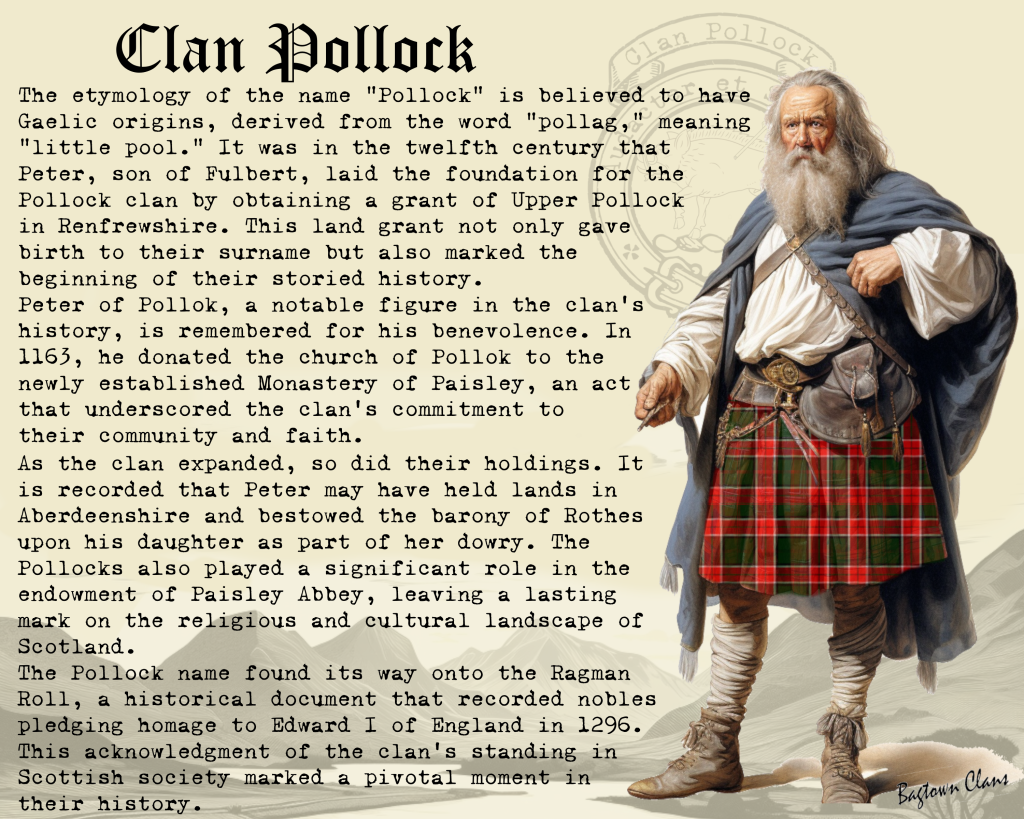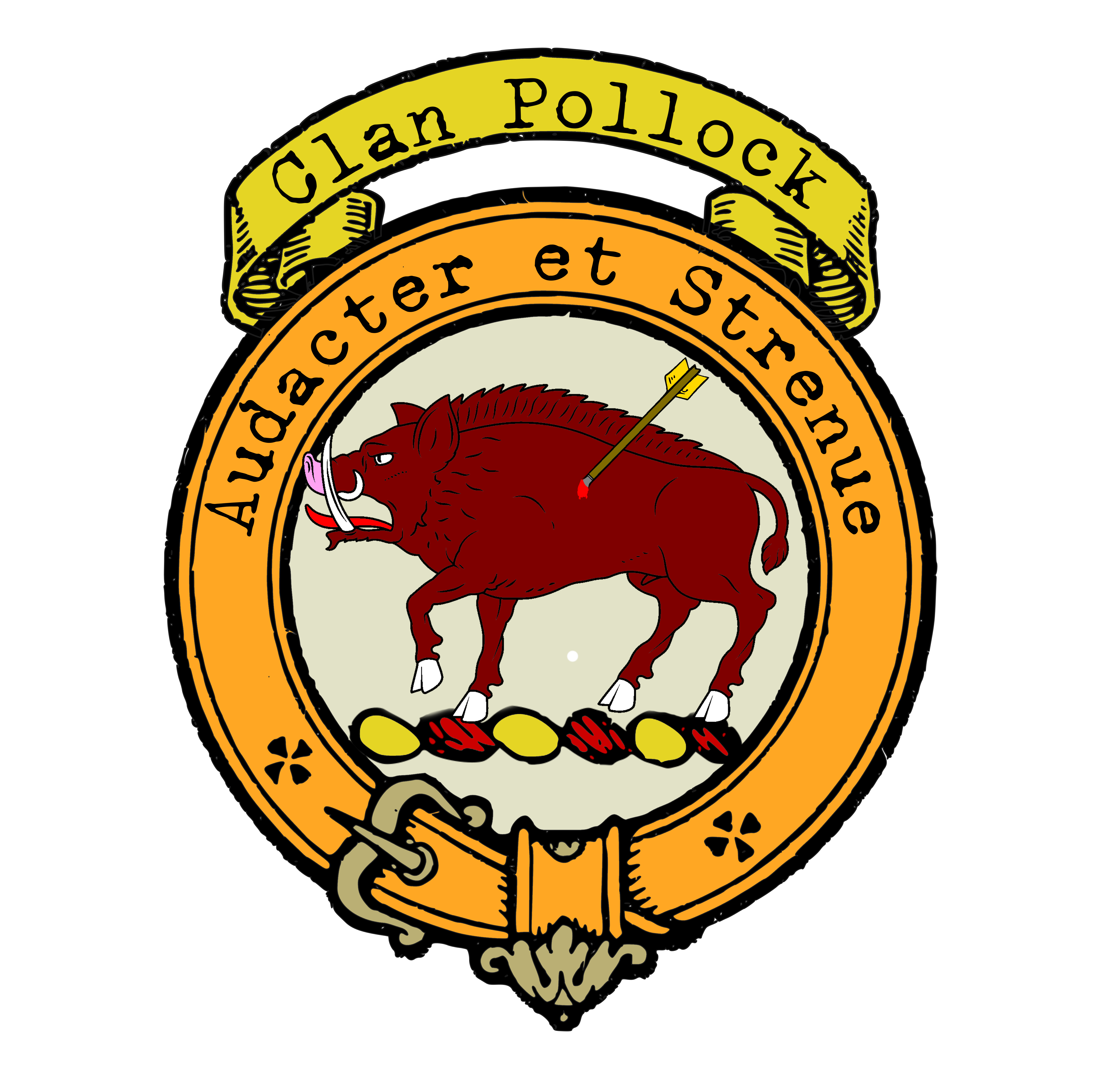Clan Pollock Crest
|
|
CREST: A boar passant shot through with a dart Proper MOTTO: Audacter et strenue TRANSLATION: Boldly and readily |
| The etymology of the name “Pollock” is believed to have Gaelic origins, derived from the word “pollag,” meaning “little pool.” It was in the twelfth century that Peter, son of Fulbert, laid the foundation for the Pollock clan by obtaining a grant of Upper Pollock in Renfrewshire. This land grant not only gave birth to their surname but also marked the beginning of their storied history.
Peter of Pollok, a notable figure in the clan’s history, is remembered for his benevolence. In 1163, he donated the church of Pollok to the newly established Monastery of Paisley, an act that underscored the clan’s commitment to their community and faith. As the clan expanded, so did their holdings. It is recorded that Peter may have held lands in Aberdeenshire and bestowed the barony of Rothes upon his daughter as part of her dowry. The Pollocks also played a significant role in the endowment of Paisley Abbey, leaving a lasting mark on the religious and cultural landscape of Scotland. The Pollock name found its way onto the Ragman Roll, a historical document that recorded nobles pledging homage to Edward I of England in 1296. This acknowledgment of the clan’s standing in Scottish society marked a pivotal moment in their history. The Pollocks were not only patrons and scholars but also warriors. John Pollock of Pollock, possibly the twelfth Laird, was a staunch supporter of Mary, Queen of Scots, and fought valiantly at the Battle of Langside. However, the tides of history turned against him, leading to the forfeiture of his lands. His son, John, met a heroic end at Lockerbie in 1593 while defending his kinsman, Lord Maxwell, in a feud against the Johnstons. The Pollock name, tarnished by political turmoil, was eventually restored. Sir Robert Pollock of Pollock was granted a baronetcy of Nova Scotia by Queen Anne in 1703 for his services to the Crown. He went on to represent Edinburgh in Parliament and played a role in the British Parliament at Westminster following the union of 1707. Across the Atlantic, the Pollock legacy continued. James Knox Polk, the eleventh President of the United States, traced his lineage back to Robert Pollock of Ayrshire. His presidency saw significant territorial expansions, including the annexation of Texas and the acquisition of California. The Pollock name also found a home in Ulster, Ireland, where it is widely recognized, particularly in Antrim and Tyrone. The Pollocks of Newry claim descent from John Pollock, who migrated from Renfrew in the mid-seventeenth century, showcasing the clan’s ability to adapt and flourish across borders. |
|
Citations:
|
|

Purchase @ Redbubble
Purchase @ Amazon.com
Purchase @ Amazon.co.uk

